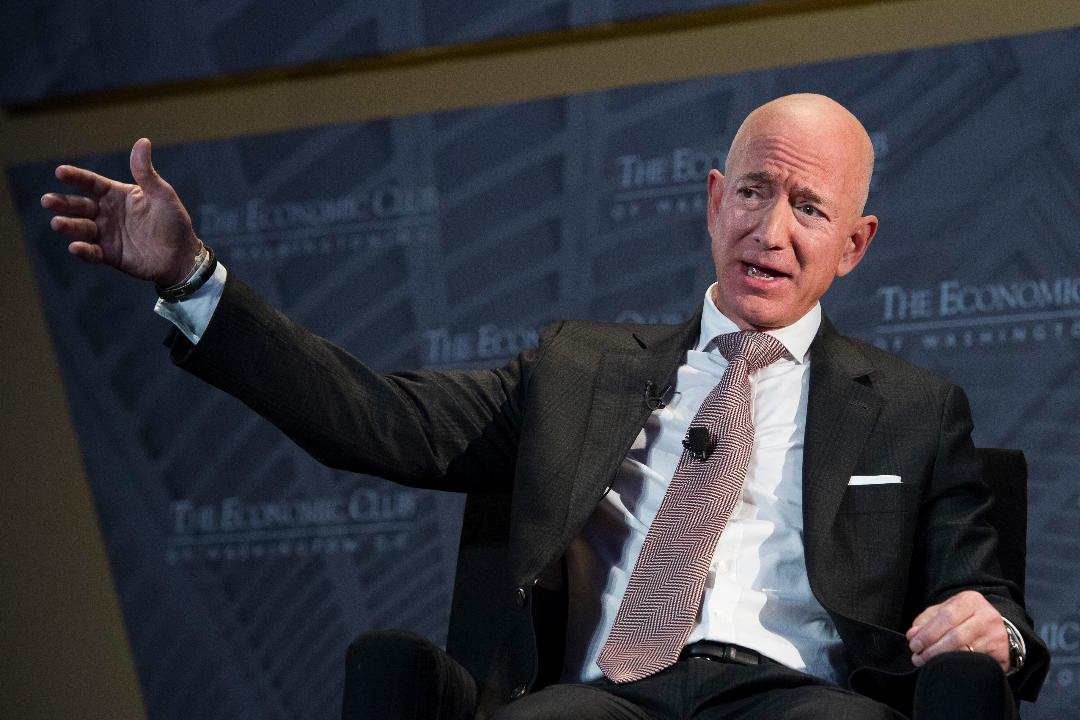Jeff Bezos' scandalous divorce and Amazon: Sometimes business is personal
When crisis hits a CEO’s personal life, it’s hard to know whether to respond or not. Often the position that companies take is that business is business, and personal is personal. But that’s not always the case. Sometimes business IS personal.
After Jeff Bezos’ very public divorce announcement earlier this month, investors are still waiting to see which route will be taken by Amazon, which is scheduled to report fourth-quarter earnings on Thursday after the closing bell.
Was there a problem?
Amazon stock was hit hard amid 2018’s volatility. And people can’t help but ask themselves, was the CEO distracted? Was he the right person to be at the helm during the recent volatile times? Did he take his eye off the ball while he was distracted with personal issues?
| Ticker | Security | Last | Change | Change % |
|---|---|---|---|---|
| AMZN | AMAZON.COM INC. | 210.32 | -12.37 | -5.55% |
These are big questions. And they can impact share price and investor confidence. And so, I would suggest that Amazon does need to enter the discussion. If nothing else, it should go on the record to address these very real concerns. And the goal of their communication should be simple: assure investors that they (and Jeff Bezos) have this.
To that end, I'd use this framework for communicating:
Validate concerns
Amazon should address the fact that divorce is personal. And as a company, they support the right to privacy of their CEO.
That said, they should then move to validate and recognize the reasonable questions people have about distractions among important senior executives and their ability to focus on and deliver on their role. And they should say that now more than ever, Jeff Bezos’ and the executive team’s focus is clear.
They should reassure folks that they understand the important role Amazon plays in people's investment portfolios, and in the products and services they provide to millions of people.
Cite shared goals
Next, they should cite the goal they share with investors. They remain focused and committed to a healthy and vibrant Amazon.
Describe actions
The next step in the framework is to give insight in to the appropriate actions the executives at Amazon are already doing. Let me be clear, I am not talking about new actions – if they were to do that they would imply that had a problem. They should talk about what they are already and consistently doing.
Highlight outcomes
And finally, they should connect those actions to recent successes and outcomes, lending the necessary credibility to both Jeff Bezos and the rest of the leadership team. They can also use this to refocus the audience on what is next, what Amazon is doing now, and why they should be excited by the tech giant in the first place.
CLICK HERE TO GET THE FOX BUSINESS APP
If they do this right, they will reassure investors and help them focus on all that is ahead for Amazon – not what is behind Jeff Bezos.
Lee Carter is president of maslansky + partners and oversees a diverse range of communication and language strategy work for Fortune 100 and 500 companies, trade associations, and non-profits in the U.S. and globally. A communication research veteran, Lee has conducted and analyzed more than one thousand instant response dial sessions, traditional focus groups and client strategy sessions. Lee has also written and overseen hundreds of language surveys and polls in more than 15 countries. She has used maslansky’s Dynamic Response took which uses 20 years of crisis response data and behavioral science to evaluate Marriott’s message.




















